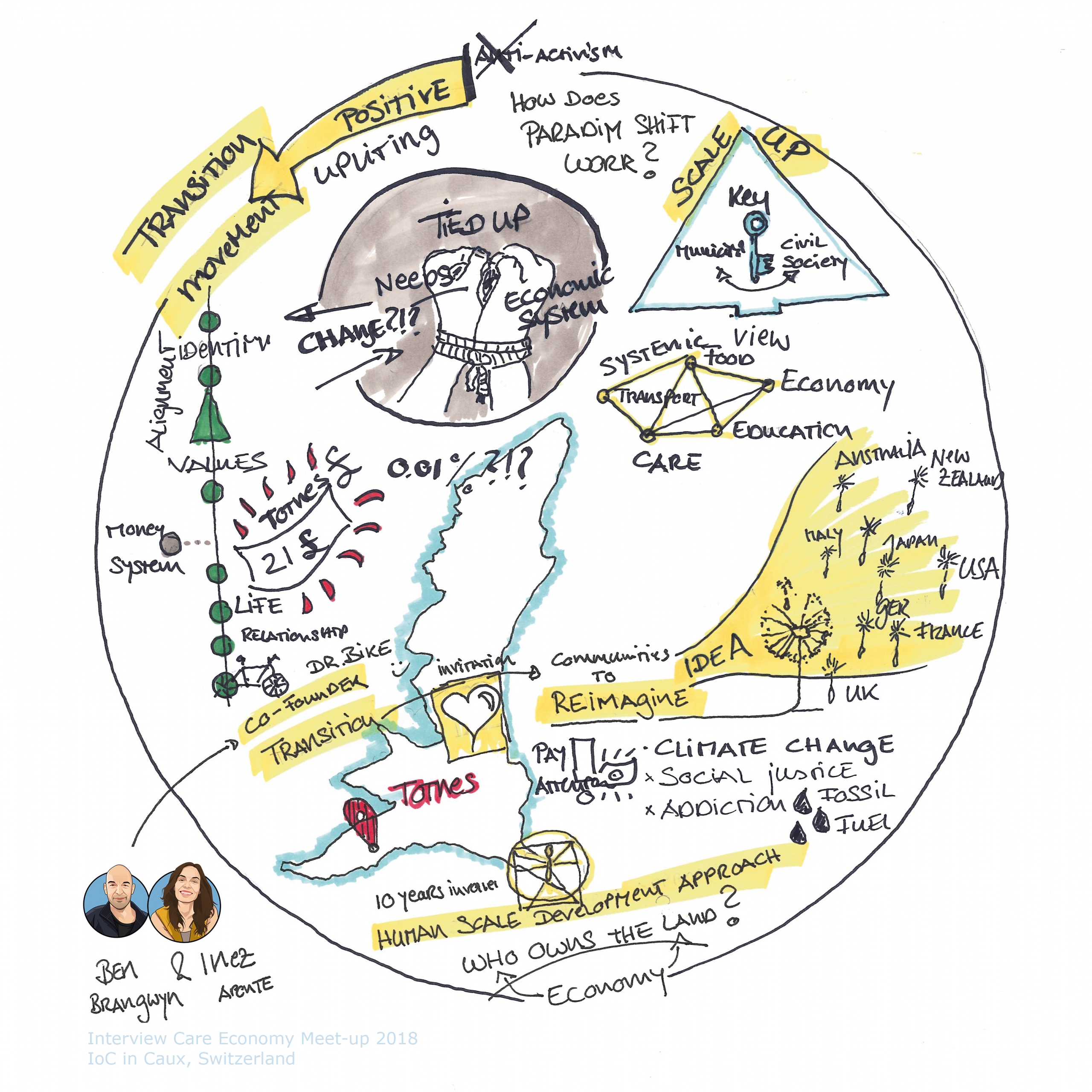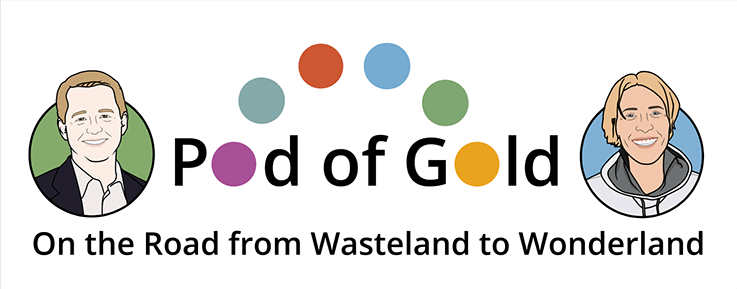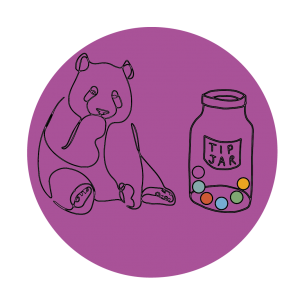Yes, You Can Pay In Chocolate (and all about Transition Towns) | Ben Brangwyn and Inez Aponte
Inez Aponte and Ben Brangwyn live in Totnes, England, a town that has reimagined their local economy to support greater sustainability, engagement, and happiness for all. (26m 03s)
Ben’s Bio
Ben’s background is in marketing, customer support and organisational change in international hi-tech businesses. However, a growing awareness of climate change, economic injustice and society’s addiction to fossil fuels compelled him away from being part of the problem towards being part of the solution. As a result, he co-founded Transition Network and decided to devote his time to helping catalyse and support community-level responses to the biggest challenges of our times. Within Transition Network, Ben coordinates International Development. In his local initiative, Transition Town Totnes, Ben is DoctorBike and an active member of the Totnes Pound team.
Inez’s Bio
Inez Aponte is a facilitator, trainer and consultant in the Human Scale Development Approach, working with individuals and communities seeking to improve their quality of life in balance with the Earth’s ecology. With an arts and performance background she has been developing participatory learning processes since 1998 and has worked with organizations such as WWF, The British Council and The Soil Association. She is an accredited Trainer for the Transition Network, co-founded the Well & Good Project and works for Totnes-based Futurebound on their Leadership for Resiliency programme. She is also a member of the New Economics Organisers Network (NEON). Inez delivers the Beautiful Economies training, which uses the Human Scale Development framework to explore how we can create thriving local economies that truly meet our needs and Storytelling for Changemakers, which teaches how to use the power of stories to inspire change.
Tracing Ben and Inez’s Story:

A History of Transition in 2 Minutes:
Relevant Facts and Links:
- Transition is a growing movement started in 2005 in Totnes, England.
- The movement centers around local, crowd-source solutions to global challenges, such as climate change and inequity.
- Transition is designed to foster more caring, mutually-supportive communities that are reclaiming the economy, sparking entrepreneurship, reimagining work, and weaving webs of connection and support.
- Transition has spread to over 50 countries in thousands of groups, towns, villages, cities, Universities, schools and beyond.
Since joining the transition network, Ungersheim has:
- Become a Fair Trade town
- Formed a citizens forum about renewable energy and campaigned for the closure of the Fessenheim nuclear power station
- Launched a local currency, ‘Le Radis’ (the radish)
- Mapped the biodiversity of the area in an ‘Atlas of Biodiversity’
- Returned a former waste heap created by mining to nature
- Installed a 120m2 solar thermal installation at the swimming pool
- Installed a wood biomass boiler which also heats the pool and several adjoining buildings
- Built Helio Parc 68, a 5.3MW solar installation and industrial estate
- Changed all the public lighting in the village to low energy bulbs, leading to a 40% reduction in energy use, as well as turning some street lights off after midnight
- Assessed all public buildings for their energy consumption
- Made land available (land owned by the Comune) to a PassivHaus co-housing project, Eco-Hameau Le Champré (of which more below)
- Completely banned all pesticides and herbicides in public areas
- Replaced all cleaning products in public buildings with eco cleaning products
- Bought a working horse to help with local food production, and also to act as a ‘bus’ to take local school kids to school
- Changed the catering arrangements so that the local primary school now serves 100% organic meals, every day, including snacks
- Transformed 8 hectares of land owned by the Comune into an organic market, Les Jardins de Cocagne, which produce 64 varieties of vegetables, provide 250 baskets of food for local families each week, and which run stalls at 5 markets every weekStarted a food preservation business, canning locally produced food so as to extend its availability
- Introduced more participative democracy





